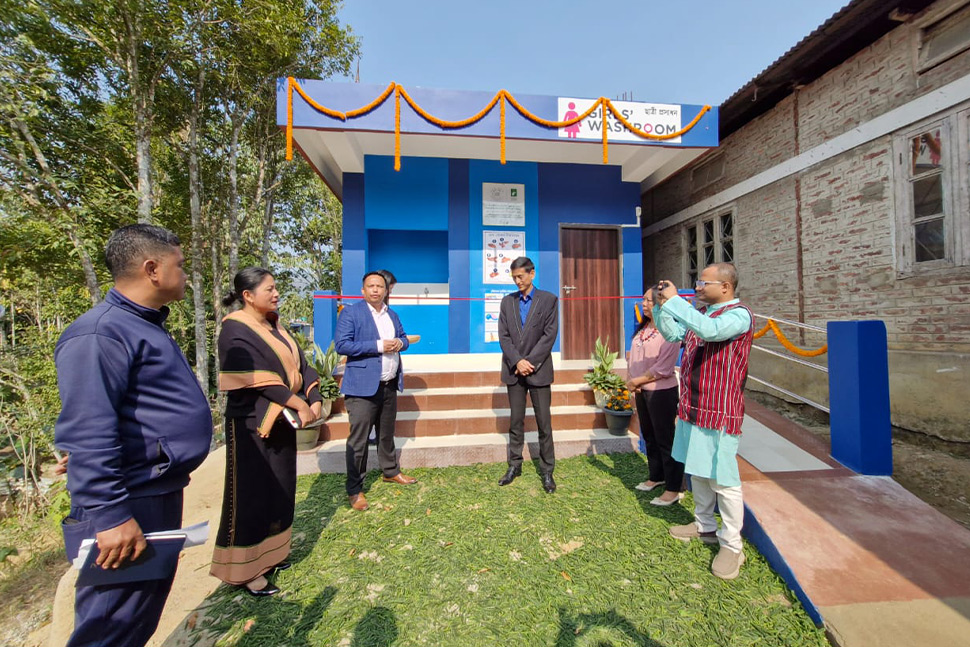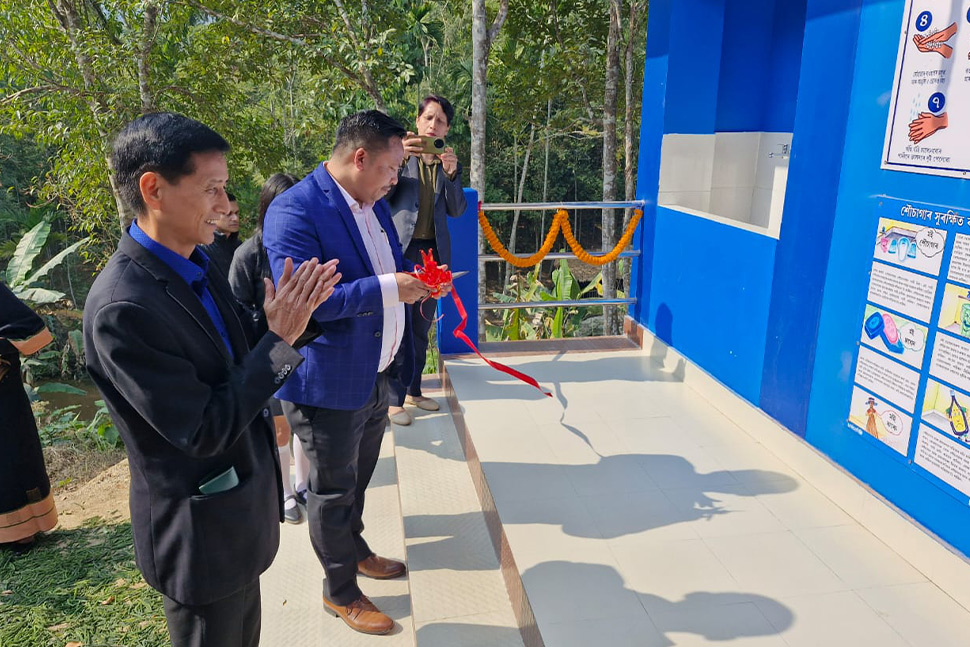Indus Towers and NEAID inaugurate sanitation facilities for girls at GHSS, Tuli, under flagship CSR initiative Pragati

In a significant step toward promoting hygiene and education, Indus Towers Limited, one of the world’s largest telecom infrastructure companies, in collaboration with the Northeast Centre for Equity Action on Integrated Development (NEAID), inaugurated modern and hygienic washroom facilities for girl students at Government Higher Secondary School (GHSS), Tuli.
This initiative, part of Indus Towers’ flagship Corporate Social Responsibility (CSR) programme, Pragati, aligns with the Swachh Bharat Abhiyan, aiming to provide safe and sustainable sanitation infrastructure in schools.
The newly constructed facilities were inaugurated by Relise Sangtam, Additional Deputy Commissioner (ADC), Tuli, in the presence of Sentinenla, District Education Officer (DEO), Mokokchung. The initiative seeks to improve hygiene, boost attendance, and create a conducive learning environment for girl students.
Addressing the gathering, ADC Relise Sangtam emphasized the importance of clean and safe hygiene infrastructure in schools, especially for young girls, whose education often suffers due to inadequate facilities. He stated, “This initiative is not just about infrastructure; it’s about dignity, equity, and opportunity. Schools and communities must work together to maintain these facilities for future generations.”
Rajendra Singh Gurung, Circle CEO, Indus Towers Limited, highlighted the company’s commitment to bridging infrastructure gaps and empowering communities through its CSR initiative, Pragati.
He remarked, “Hygienic sanitation is essential for an inclusive learning environment. By collaborating with NEAID, we reaffirm our dedication to ensuring equitable access to education and contributing to a healthier, more inclusive society.”

Sentinenla, DEO Mokokchung, expressed gratitude for the initiative, noting its direct impact on attendance and academic performance. She stressed, “Access to clean sanitation facilities ensures dignity and well-being, particularly for girls. This project is a testament to the power of collaboration between the private sector, government, and community.”
Beyond infrastructure, the initiative also included a Menstrual Hygiene Workshop, equipping students with essential knowledge about personal health and sanitation. Meraj Ahmed, Co-Founder of NEAID, stated, “Empowering young girls with dedicated sanitation facilities and hygiene education transforms the educational landscape and fosters hope for a better future.”
This project is a step toward holistic development, ensuring self-confidence, better health, and uninterrupted education for young girls. Indus Towers and NEAID continue to champion initiatives that create sustainable, long-term impacts in education and community well-being.




Leave a Reply